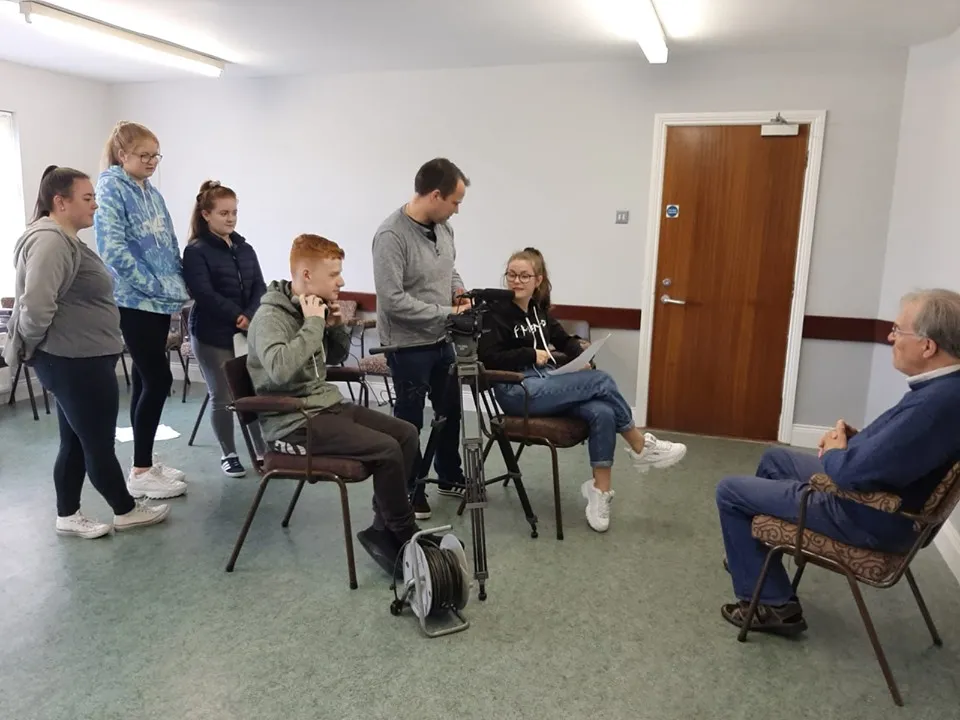We are delighted to announce that the ‘Border Roads to Memories and Reconciliation’ collection has been published in DRI. This is the outcome of a project focusing on creating awareness among younger people about the closed border roads of the past, and the effects this had on border residents and communities. Through a sequence of facilitated workshops, young participants listened to, worked with, and recorded older people who had experienced the closed border.
Project coordinator David McMullan explained how the young people were introduced to the practical skills that they would need, through a dedicated training session:
This workshop introduced them to the camera and equipment used to record an interview. They were also instructed on how to conduct an interview and formulate questions to ask their interviewees, before taking turns and interviewing and recording themselves.
The resulting interviews cover an impressive range of subjects from childhood memories of crossing the border, to social lives across the closed border, to the likely impact of Brexit on border communities.
We are especially delighted to include these recordings in DRI, since social and oral history forms an important component of our collections. Other oral history collections in DRI include the Irish Women at Work Oral History Project deposited by University College Cork; as well as the the Magdalene Oral History and Life Histories and Social Change collections deposited by the Irish Qualitative Data Archive
Visit the DRI repository to access the Border Roads to Memories and Reconciliation collection, deposited by Monaghan County Council.
You can also keep up with the project by following the ‘Border Roads’ social media: the Facebook page is @borderroadmemories and you can find the Twitter feed at @BorderRoads.
Image: Interviewers with interviewee. Published by permission of ‘Border Roads to Memories and Reconciliation’.
About ‘Border Roads to Memories and Reconciliation’
A project supported by the European Union’s PEACE IV Programme, managed by the Special EU Programmes Body.
This project is managed by Latton Social Services & Development CLG. on behalf of our lead partners Cavan County Council and Monaghan County Council.
The Special EU Programmes Body is a North/South Implementation Body sponsored by the Department of Finance in Northern Ireland and the Department of Public Expenditure and Reform in Ireland.
It is responsible for managing two EU Structural Funds Programmes, PEACE IV and INTERREG VA which are designed to enhance cross-border co-operation, promote reconciliation and create a more peaceful and prosperous society.
The Programmes operate within a clearly defined area including Northern Ireland, the Border Region of Ireland and in the case of INTERREG VA, Western Scotland.
The PEACE IV Programme has a value of €270 million and aims to promote peace and reconciliation in Northern Ireland and the Border Region of Ireland.
For more information on the SEUPB please visit www.seupb.eu






